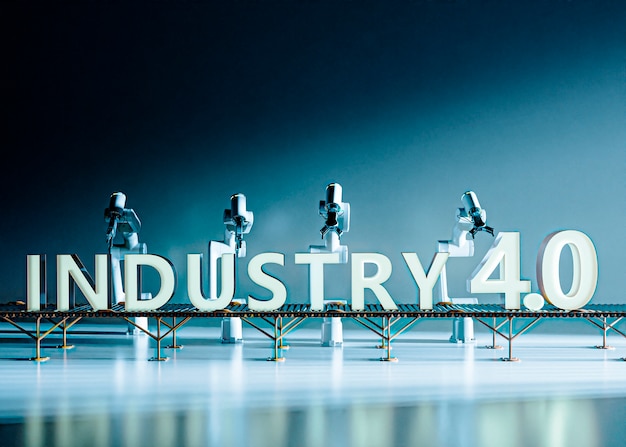Chicago’s never really lost its spot as a manufacturing powerhouse. But now, the city’s charging into the future—embracing the so-called Industrial Revolution 4.0, with artificial intelligence leading the way. Companies all over town are weaving AI into their operations. The goal? Run smoother, cut costs, and move faster than ever.
It’s not just about the tech. Chicago’s full of smart AI developers and innovative companies, all working to bring smarter, data-driven solutions to the factory floor. They’re helping manufacturers boost quality, streamline processes, and stay ahead. So, what does this wave of change actually look like? Let’s dig in.
Many manufacturers are partnering with a leading AI development company in Chicago to implement smart Industry 4.0 solutions.
Why AI Matters for Chicago Manufacturing
Manufacturers in Chicago face some tough problems: high production costs, fierce competition, tangled supply chains—you name it. AI steps in and helps by:
- Automating boring, repetitive work
- Predicting when machines need fixing (before they break)
- Catching quality issues early
- Smoothing out logistics and inventory headaches
- Making workplaces safer
When manufacturers team up with local AI experts, they get solutions that fit their own unique challenges—not just off-the-shelf fixes.
Where Chicago Manufacturers Are Using AI
- Predictive Maintenance
Imagine sensors that spot trouble in a machine before it shuts down the whole line. That’s what AI does here. Chicago’s AI developers are building these smart systems, and it’s saving companies a ton on repairs and lost time.
- Quality Control
Forget relying only on human eyes to catch defects. AI-powered cameras and algorithms can scan products for flaws way faster. Local companies are rolling out these tools to keep quality up—and customers happy.
- Supply Chain Optimization
With AI, companies can forecast demand, keep inventory steady, and move products without the usual guesswork. It’s all about making sharper decisions and cutting out waste.
- Robotics and Automation
On the factory floor, AI-driven robots are picking up the dirty and dangerous jobs, all while working with impressive precision. Chicago’s experts make sure these robots fit right in, without messing up production flow.
- Smarter Decisions with Data
AI digs through mountains of data—from machines, supply chains, and more—to find patterns and offer real insights. Managers can spot issues early or jump on new opportunities without waiting for problems to blow up.
The Value of Chicago’s AI Experts
Rolling out AI isn’t plug-and-play. You need people who get both the tech and the realities of manufacturing. That’s where Chicago’s AI companies shine. They offer:
- Custom solutions, not just generic software
- Smooth integration with what’s already on the floor
- Know-how to stay within industry rules and safety standards
- Ongoing support to keep systems sharp
With the right team, manufacturers get results they can actually see—less downtime, better products, more profit.
Why Chicago Manufacturers Are Betting on AI
- Streamlined operations
- Less downtime and lower maintenance bills
- Consistent, higher-quality products
- Smarter, faster supply chains
- Safer workplaces
- Quicker innovation
- A real edge over the competition
AI isn’t just a buzzword here—it’s helping Chicago’s manufacturers work smarter, move faster, and stay on top.
Bringing It All Together
AI is shaking up manufacturing in Chicago. With talented local developers and forward-thinking companies, the city’s factories are getting more efficient, producing better products, and running tighter supply chains. If you’re a manufacturer here, partnering with the right AI experts isn’t just a good idea—it’s how you stay in the game for the long haul.
Leading AI development companies in Chicago are driving innovation and competitiveness in the local manufacturing sector.
FAQs
- How is AI changing manufacturing in Chicago?
AI’s making a difference with predictive maintenance, smart quality control, streamlined supply chains, and sharper operations overall. - What do AI development companies in Chicago actually do?
They design and roll out AI solutions that fit real manufacturing needs—from building custom tools to keeping everything running smoothly. - How do local AI developers help manufacturers?
They create smart applications, automation tools, and dashboards that help companies work faster and make better decisions. - What’s the big benefit of using AI development services in Chicago?
You get automation, smarter maintenance, better quality, improved workflows, and real Industry 4.0 readiness. - Does AI really make Chicago manufacturers more competitive?
Absolutely. With faster innovation, tighter operations, and better decisions, manufacturers get a true advantage.




